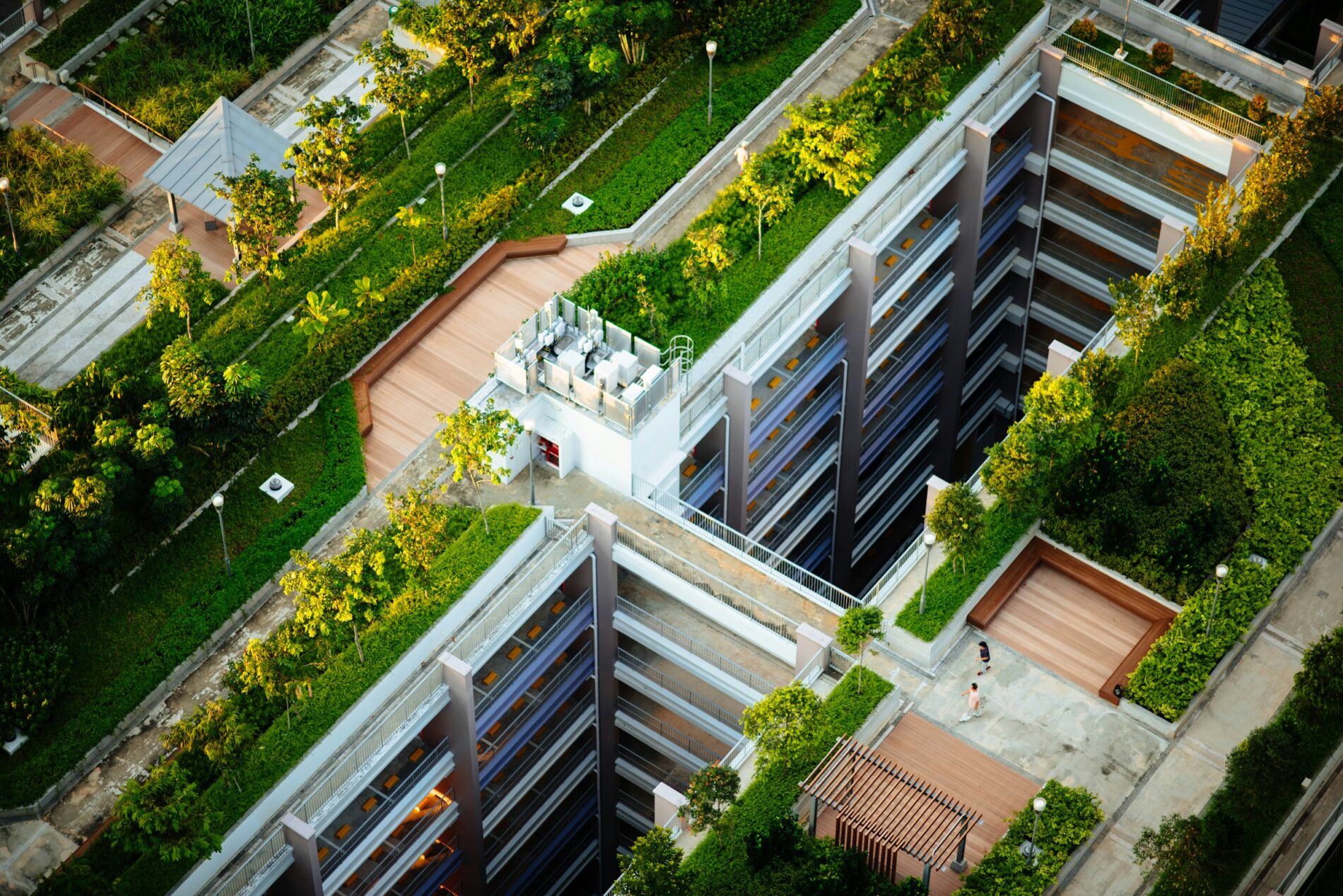In the heart of our concrete jungles, a revolution is quietly blooming—rooftop gardening. This innovative practice is not just about beautifying our urban spaces but transforming them into thriving ecosystems that benefit our health, community, and environment. Let's dive into rooftop gardening and discover how it can redefine urban living.

The Serenity Above Health and Well-being Advantages
Imagine a sanctuary above the city where stress melts away and fresh produce thrives. Rooftop gardens are this and more—oases of calm that promote physical and mental health. Studies have shown that engaging with rooftop gardens can lower cortisol levels, improve mood, and enhance mindfulness.
Moreover, these elevated gardens encourage physical activity and provide city dwellers access to fresh fruits and vegetables, often turning 'food deserts' into 'food heavens.'
Rooftop Gardening:
Social and Economic Growth Through Greenery
Rooftop gardens have a profound impact on community dynamics and economic value. They serve not just as green oases but as catalysts for social interaction and community development. By transforming underutilized roof spaces into vibrant communal areas, they foster social bonds and collective engagement in urban settings. The process of planning, creating, and maintaining these gardens encourages collaboration, promoting a sense of shared purpose and community spirit.
Economically, rooftop gardens contribute to property valuation and longevity of urban infrastructure. They enhance the aesthetic appeal and functionality of buildings, making them more attractive to potential buyers or tenants, thereby increasing property values. Moreover, the environmental benefits of rooftop gardens, such as insulation and reduced energy costs, contribute to the economic efficiency of urban buildings, making them a smart investment for the future.
Nurturing Nature: Environmental Benefits
The environmental advantages of rooftop gardens are vast and varied. They play a crucial role in mitigating urban heat islands—a significant concern in densely populated cities where concrete and asphalt significantly increase temperatures. Through evapotranspiration, rooftop gardens cool their immediate surroundings, thereby contributing to the overall reduction of urban heat.
Rooftop gardens also improve air quality by filtering pollutants and producing oxygen, thus offering a natural solution to urban pollution. Additionally, they manage stormwater effectively, absorbing rainwater that would otherwise contribute to runoff and potential flooding. By doing so, they alleviate pressure on urban drainage systems and reduce the risk of water-related issues in cities.
Challenges and Solutions
Despite their numerous benefits, establishing rooftop gardens is not without its challenges. Structural concerns, such as the weight capacity of buildings and the integrity of roofs, are primary considerations. The selection of plants, materials, and the overall design must account for these limitations to ensure the safety and viability of the garden.
Maintenance and accessibility present ongoing challenges. Rooftop gardens require regular care, including watering, pruning, and pest management, which can incur significant costs. However, these obstacles can be navigated successfully with innovative solutions like lightweight soil alternatives, drought-resistant plants, and efficient irrigation systems.
To overcome these challenges, stakeholders can engage in community partnerships, leverage technological advancements, and advocate for supportive urban policies. By doing so, they can create resilient and sustainable rooftop gardens that enrich urban environments socially, economically, and environmentally.
The Bottom Line:
Transforming our urban environments with rooftop gardens offers a sustainable path forward, one where communities thrive, biodiversity flourishes, and cities become more resilient. By embracing this green revolution, we can create a healthier, more sustainable future for future generations.
Frequently Asked Questions:
How do I start a rooftop garden in a city?
Begin by assessing the weight capacity of your roof and choose lightweight containers and drought-resistant plants. Set up an efficient watering system to ensure your garden thrives.
Can rooftop gardens really help reduce city temperatures?
Yes, by absorbing heat and releasing moisture, rooftop gardens can lower the surrounding temperatures, mitigating the urban heat island effect.
Are rooftop gardens expensive to maintain?
While initial setup costs and maintenance can be significant, the long-term environmental, health, and social benefits make it a worthwhile investment.




